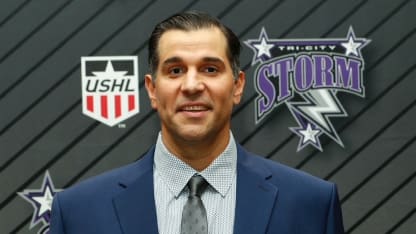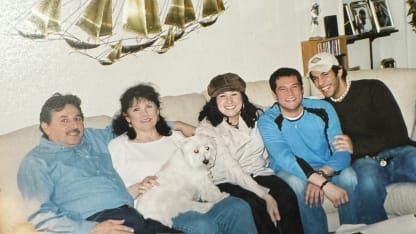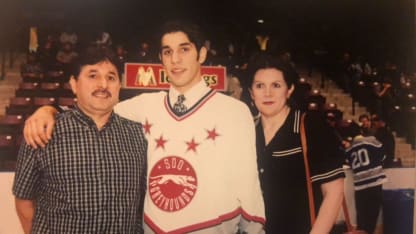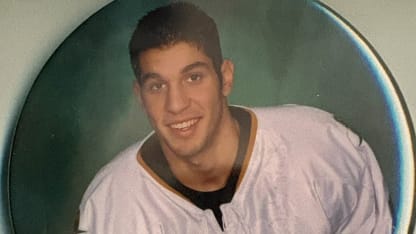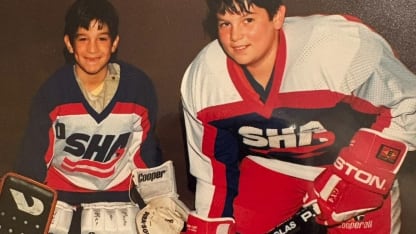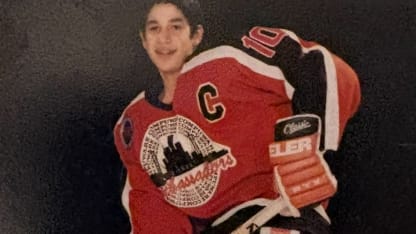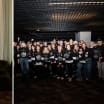Think of all the words typed and spoken by hockey people around the world. Scouting reports, line charts, game notes, travel itineraries -- all expressed in countless languages. Amid the scroll, it's easy to skip over the story of one name.
And one letter.
Marco Treviño is providing us with reason to pause.
Treviño, 40, is the new coach of the United States Hockey League's Tri-City Storm. When you visit Treviño's X account, you may notice an important detail in his name presentation: the tilde over the letter n.
The eñe is a distinct letter in the Spanish alphabet, with its own pronunciation. On Spanish-language phones and computers, there are separate keys for ñ and n. Treviño is said differently than Trevino.
Treviño wants to share that part of his family story -- to represent, educate, and inspire.
"That's why it's there," Treviño says. "I want people to understand. You come from a Latin background -- in my case, being full Mexican -- it's not something you see in the game. I want people to see it, so they say, 'This guy did it. This guy played for a long time, and now he's coaching for a long time.'"
For Treviño, the tilde is a small yet powerful culmination of a dream he's held since his youth hockey career.
Marco grew up in the Detroit area, where his parents, Bernardino and Gloria, still live today. Bernardino was born in Linares, Nuevo León, Mexico, and immigrated to the U.S. at 17 years old; Gloria was born in Michigan after her parents moved from Linares to Detroit.
